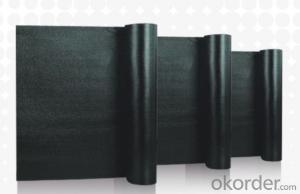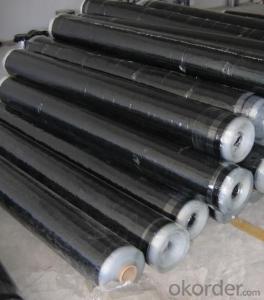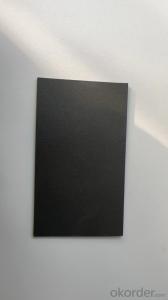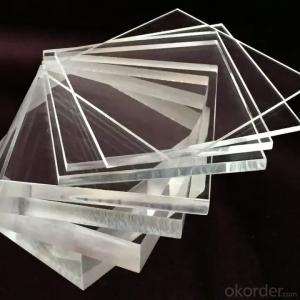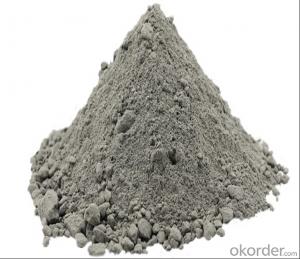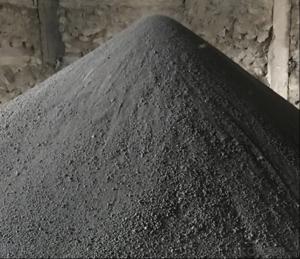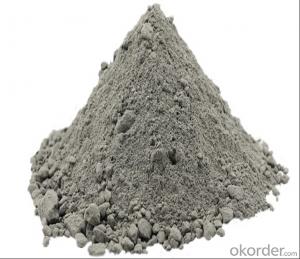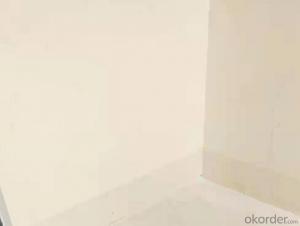Self Adhesive Modified Bituminous Waterproof Membrane
- Loading Port:
- China main port
- Payment Terms:
- TT OR LC
- Min Order Qty:
- 5000 m²
- Supply Capability:
- 100000 m²/month
OKorder Service Pledge
OKorder Financial Service
You Might Also Like
Description
itis a modified bitumen base sheet consisting of polymer modified asphalt added viscosifier inside covering with different upper separated materials and underside with silicone antisticking layer. According to different upper surface, it includes three types: PE film surfacing (SAM-930APE), sand surfacing (SAM-930AS) and antisticking surfacing (SAM-930AN). There have two kinds of thickness: 3.0 mm and 4.0 mm.
Item | Requirement | ||
Soluble matter content, g/m 2 ≥ | 3 mm | 2100 | |
4 mm | 2900 | ||
Tensile property | Tensile strength, N/50mm ≥ | 3 mm | 600 |
4 mm | 800 | ||
Elongation at the maximum tensile force, % ≥ | 40 | ||
Resistance to heat( degree centigrade ) | 70, No sliding, flowing, dripping | ||
Flexibility at low temperature,( degree centigrade ) | -30 | ||
No cracking | |||
Water tightness | Pass at 0.3 MPa, 120 min | ||
Sheering properties N/50mm | Between membranes ≥ | 1.0 | |
Between membrane and aluminum plate ≥ | 1.5 | ||
Shank watertight | Pass | ||
Immersed in oil, pieces ≤ | 2 | ||
Holding Power/ min ≥ | 15 | ||
Thermal ageing | Elongation at the maximum tensile force, % | 40 | |
Flexibility at low temperature,( degree centigrade ) | -28 | ||
No cracking | |||
Sheering properties between membrane and aluminum plate, N/mm | 1.5 | ||
Dimension stability, % ≤ | 1.0 | ||
Self-adhesive bitumen re-peel strength, N/mm ≥ | 1.5 | ||
Usage
Roofs or undergrounds.
Swimming pools, fire pools and reservoirs;
Subways or tunnels;
Open fires-forbidden construction areas;
Cold construction areas.
Advantages
Self adhesive, safe and environment-friendly;
Good tensile strength and elongation;
Strong adaptability for substrate shrinkage, deformation and cracks;
It will be a high-strength membrane to resist water;
Penetration-resisting and corrosion-resisting;
Excellent flexibility in low temperature;
Strong self healing ability for penetration and cracks.
FAQ
1. Is sample available before place orders?
A:Yes, sample is ok。
2. How long is the dispatch period?
A: It will be around 20-30 days.
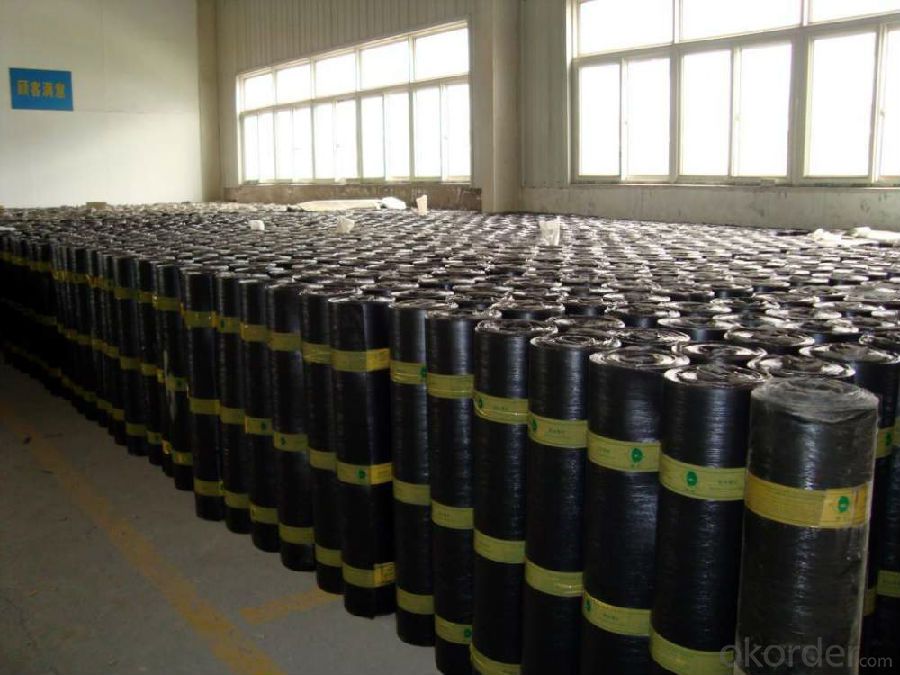
- Q:Can a waterproofing membrane be used for a stadium roof structure?
- Yes, a waterproofing membrane can be used for a stadium roof structure. A waterproofing membrane is a protective layer that prevents water from penetrating the roof and causing damage. It is typically made of materials such as rubber or synthetic polymers that are resistant to water. In the case of a stadium roof structure, a waterproofing membrane can be used to ensure that the roof remains watertight and prevents any leaks or water damage. This is particularly important for stadiums that have open-air or retractable roofs, as they are exposed to the elements and are more susceptible to water infiltration. A waterproofing membrane can be applied to various types of stadium roof structures, including metal, concrete, or even fabric roofs. It is typically installed beneath the roofing material, acting as a protective barrier against water. By preventing water from seeping into the roof, the membrane helps to extend the lifespan of the roof and protect the interior of the stadium from water damage. Additionally, a waterproofing membrane can also provide other benefits for a stadium roof structure. It can help to improve energy efficiency by reducing heat loss or gain through the roof. Some membranes also offer UV resistance, which helps to protect the roof from damaging ultraviolet rays. Overall, using a waterproofing membrane for a stadium roof structure is a practical and effective solution to ensure the roof remains watertight, durable, and protected from water damage.
- Q:Can a waterproofing membrane be used in areas with heavy foot traffic or vehicle loadings?
- Yes, a waterproofing membrane can be used in areas with heavy foot traffic or vehicle loadings. However, it is important to ensure that the membrane selected is designed specifically for such conditions and is capable of withstanding the expected loads and pressures. Additionally, regular maintenance and inspections are necessary to ensure the membrane remains intact and functional in high-traffic areas.
- Q:Does a waterproofing membrane provide any soundproofing benefits?
- No, a waterproofing membrane does not provide any soundproofing benefits. Its primary function is to prevent water penetration and protect against moisture damage. Soundproofing requires specific materials and techniques designed to absorb, block, or isolate sound waves.
- Q:Can a waterproofing membrane be used on plastic block surfaces?
- Indeed, it is possible to utilize a waterproofing membrane on surfaces composed of plastic blocks. These membranes are specifically engineered to serve as a safeguard against moisture, effectively hindering water infiltration. Similar to any other type of surface, plastic blocks are prone to water-related harm if not adequately shielded. By applying a waterproofing membrane, one can successfully seal and safeguard the plastic blocks, thus thwarting water permeation and potential destruction. To achieve optimal outcomes, it is crucial to select a waterproofing membrane that harmonizes with plastic materials and adhere to the manufacturer's application guidelines.
- Q:Can a waterproofing membrane be used on brick surfaces?
- Yes, a waterproofing membrane can be used on brick surfaces. The membrane can be applied to protect the brick from moisture, water infiltration, and potential damage caused by water absorption.
- Q:Are waterproofing membranes resistant to chemicals?
- Yes, waterproofing membranes are generally resistant to chemicals. They are designed to provide a barrier against water, moisture, and various chemicals, making them highly effective in protecting surfaces against chemical damage.
- Q:Can a waterproofing membrane be used in swimming pools?
- Indeed, the utilization of a waterproofing membrane in swimming pools is widespread. To avert water leakage, it is a customary practice to incorporate waterproofing membranes during the construction or refurbishment of swimming pools. These membranes possess an exclusive design that enables them to function as a barrier against water infiltration, guaranteeing the pool's impermeability and leak-free condition. Typically, these membranes are crafted from robust materials like PVC, EPDM, or polyurethane, which exhibit resistance to water, chemicals, and UV rays. Furthermore, their flexibility allows them to effortlessly conform to the pool's shape and contours, providing a seamless and enduring waterproofing solution.
- Q:Can a waterproofing membrane be used for crawl spaces or basements?
- Yes, a waterproofing membrane can be used for crawl spaces or basements. Waterproofing membranes are designed to create a barrier against water intrusion, providing protection against moisture and potential water damage in these areas. They can effectively prevent water seepage and help keep crawl spaces and basements dry.
- Q:Can a waterproofing membrane be used on brick surfaces?
- Yes, a waterproofing membrane can be used on brick surfaces. Waterproofing membranes are designed to provide a barrier against water penetration, and they can be applied to various surfaces including brick. Applying a waterproofing membrane on a brick surface can help prevent water damage, such as moisture seeping into the brick and causing deterioration or mold growth. It is important to choose a waterproofing membrane that is compatible with brick and follow the manufacturer's instructions for proper application. Additionally, it is recommended to consult with a professional to ensure the correct membrane is selected and applied according to the specific needs and conditions of the brick surface.
- Q:Can a waterproofing membrane be used for exterior foundation walls?
- Exterior foundation walls can indeed benefit from the application of a waterproofing membrane. These membranes serve as a defense against water infiltration and are widely utilized in construction to safeguard below-grade structures, like foundation walls, from moisture intrusion. Crafted from robust materials such as rubber, asphalt, or polymer-based compounds that resist water penetration, these membranes form an impermeable shield. Placing a waterproofing membrane on the outside of foundation walls effectively establishes a barrier that thwarts water from seeping into the foundation. This preventive measure aids in averting problems such as water damage, mold growth, and structural decay. Moreover, the utilization of waterproofing membranes also diminishes the risk of cracks and leaks in the foundation, thereby improving the overall resilience and longevity of the structure.
1. Manufacturer Overview |
|
|---|---|
| Location | |
| Year Established | |
| Annual Output Value | |
| Main Markets | |
| Company Certifications | |
2. Manufacturer Certificates |
|
|---|---|
| a) Certification Name | |
| Range | |
| Reference | |
| Validity Period | |
3. Manufacturer Capability |
|
|---|---|
| a)Trade Capacity | |
| Nearest Port | |
| Export Percentage | |
| No.of Employees in Trade Department | |
| Language Spoken: | |
| b)Factory Information | |
| Factory Size: | |
| No. of Production Lines | |
| Contract Manufacturing | |
| Product Price Range | |
Send your message to us
Self Adhesive Modified Bituminous Waterproof Membrane
- Loading Port:
- China main port
- Payment Terms:
- TT OR LC
- Min Order Qty:
- 5000 m²
- Supply Capability:
- 100000 m²/month
OKorder Service Pledge
OKorder Financial Service
Similar products
New products
Hot products
Hot Searches
Related keywords
